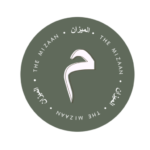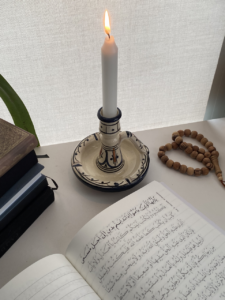Lessons from Surat An-Nur

Surat An-Nur is one I very often come back to: it not only has all the lessons and rules of conduct we should have in mind and follow as Muslims but also has some the most powerful metaphors in the Qur’an, illustrating the Greatness of Allah SWT but also, how dark the path of not following Him is and will be.
Here are three main topics and lessons to take from An-Nur:
1. What good behaviour is about
Whether it comes to alerting and being complete just in the face of zina/adultery, how detrimental gossiping and backbiting are or how we need to question ourselves so we do not fall into hypocrisy in regards to faith, we can definitely tell that moral is a central part of the surat. However, the rules of conducts extend to how we should behave in society and encompass every kind of people: women of all age, the poor, the sick, the businessman, the host… Overall, it clearly highlights the importance of respect in Islam.
When you received it with your tongues and said with your mouths that of which you had no knowledge and thought it was insignificant while it was, in the sight of Allah , tremendous. And why, when you heard it, did you not say, "It is not for us to speak of this. Exalted are You, [O Allah ]; this is a great slander"?
[24:15-16]
I will be completely honest here: one of the things that frustrates me the most is when someone describes Islam as oppressive and misogynist, and even more so from people that are part of our community but unfortunately were always forced into things without receiving the right education. Surat An-Nur shows how Islam truly values women and how Allah SWT sent us orders to make sure we preserve our purity, both from our end and on the opposite sex’s. In addition to being the surat that states the obligation of wearing hijab as a woman [24:31], it mentions the obligations for men to lower their gaze, to gather not one, two, three but four witnesses if they accuse their wives of fornicating, and even declares that anyone who accuses falsely a chaste woman will be cursed forever. Talk about not protecting women huh?
Indeed, those who [falsely] accuse chaste, unaware and believing women are cursed in this world and the Hereafter; and they will have a great punishment [24:23]
As aforementioned, An-Nur has some of the most impactful verses in the Qur’an, which not only sound beautiful but are also very thought-provoking. As many other chapters, it offers a variety of reminders on His ever everlasting Forgiveness when we sincerely repent, on how He truly brings light into the darkness of our lives, hearts and souls but also make sure to warn us on how disobeying Him lead to our loss. This is done by both scaring us with lively punishments, but also through the usage of metaphors and comparisons that undeniably speak to us when describing people not following His path, and that I personally find even more worrying (can you imagine being lost and delusional in a desert or drowning under the waves without ever being able to raise the surface…? – [24:39-40]). Through the tone of the surah, I immediately knew it was Medinan, which aimed to set the foundations of Islam for the new communities Prophet Muhammad ﷺ met when he arrived in Medina and tend to focus less on the attributes of our Creator. Still, I think we can truly perceive how Merciful He is and how, although it does bring a bit of anxiety at the thought of ignoring His messages, He made it easy for us to follow and come back to Him.
The only statement of the [true] believers when they are called to Allah and His Messenger to judge between them is that they say, "We hear and we obey." And those are the successful. [24:51]
In a nutshell, An-Nur is a wonderful life reminder on many levels: taking time to remind ourselves not only about the incredible qualities of our Creator but also about how detrimental for us it is to not embrace His spiritual and moral commands allow us to reset and, Subhan’Allah, see His light again.



